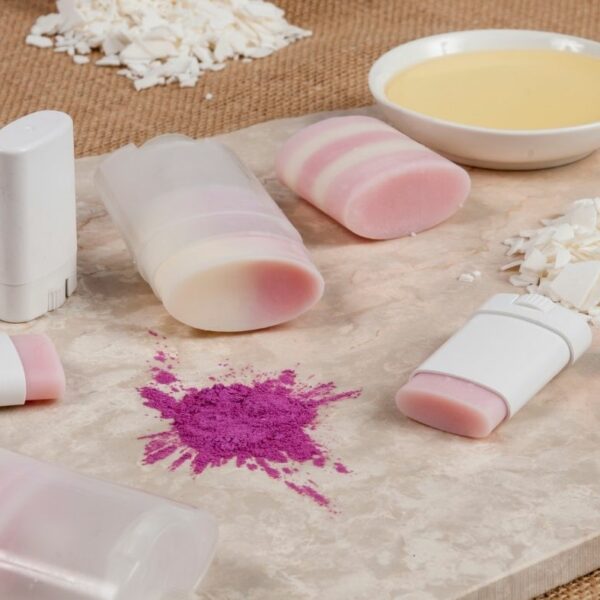
Almost every stick or spray can of deodorant or antiperspirant leaves a mark on the environment, from the materials used to store and ship it to the actual chemical ingredients it is made of.
This week’s tip looks at why deodorants are harmful to the environment and what you can do to mitigate their impact on your life.
Spray deodorants and antiperspirants pose the most visible and potentially dangerous environmental threat.
When you use a spray-on deodorant or antiperspirant, you are releasing chemicals into the environment.
These sprays are likely to contain the most volatile organic compounds.
These compounds contribute to the formation of ground-level ozone, which is a key component in the formation of smog, a major source of pollution in our atmosphere.
Many deodorants, as well as other skincare products, contain the antibacterial chemical triclosan.
This ingredient helps to reduce and prevent bacterial contamination, which helps to keep body odour at bay.
Triclosan, unfortunately, washes off your body and enters the waterways where it floats on the surface of the water, posing a threat to the aquatic organisms that live there.
Other ingredients in traditional deodorants and antiperspirants are phthalates, formaldehyde, parabens and aluminium.
The chemicals known as parabens are thought to increase risks of cancer, with Breast Cancer UK calling for them to be phased out of cosmetics.

Some studies have also found links between aluminium exposure and breast cancer and Alzheimer’s disease, while others have not.
At the moment, the authorities maintain that there is no conclusive evidence linking deodorant or antiperspirant to breast cancer or Alzheimer’s.
They do, however, acknowledge the need for additional research, implying that the answer is still inconclusive.
The presence of aluminium also creates other causes for concern.
The aluminium found in deodorant is derived from strip-mining bauxite ore, which is a labour-intensive, water-intensive, and chemical-intensive process, causing a huge negative impact on the environment.
Bauxite ore mining has also been associated with child labour and human trafficking.
The irresponsible packaging of deodorants is another of the reasons why they are bad for the environment.
Many deodorants are packaged in plastic, tin, or other non-biodegradable materials.
When you disregard the packaging materials that come with your deodorant, you contribute to the excessive trash that pollutes the environment.
Fortunately, there are ways to avoid these negative environmental impacts.
The most obvious thing to try is no deodorant or antiperspirant at all!
“An armpit detox allows the microbiome in the armpit to rebalance to a normal state,” says Mona Gohara, M.D., associate clinical professor of dermatology at Yale. “It’s a break from products.”

Because your armpits contain a large number of lymph nodes, which play an important role in the body’s waste elimination process, some people believe that detoxing the area can help remove harmful buildup caused by years of deodorant and antiperspirant use.
According to armpit detox advocates, this could result in less stinky sweat and less sweat overall.
If you don’t want to go au-naturale, but want to be more natural, you could try making your own.
Failing that there are sustainable alternatives and following a couple of simple rules will help.
You should avoid anything that has a pressurised container to keep nasty propellants out of the atmosphere.
Disposable casings should also be avoided; look for brands that allow their casing or bottles to be reusable/refillable.
Look for ingredients with disinfectant or antibacterial properties, such as coconut oil and tea tree oil.
Essential oils like lavender, sandalwood, or bergamot provide a pleasant scent and naturally absorbent ingredients like baking soda, arrowroot, or corn-starch to combat moisture.
Finally, look for the leaping bunny mark as this means that your product has not been tested on animals.
There are some fantastic brands out there such as Wild, Pit Putty and Pure Chimp who all make deodorants that help you reduce your own environmental impact.
Play It Green’s favourite sustainable alternative is made by Fussy!
Fussy has created a simple, high-quality, sustainable natural deodorant that is as effective as it is beautiful to look at and use.
All their packaging is made from fully recyclable cardboard, FCS approved and their refill containers are plastic-free, made from waste sugarcane and once empty will just decompose in your garden or the bin.
Their award-winning case is made from recycled plastic, is fully recyclable and made to last a lifetime.
How good is that? And to help everyone take another step to a more sustainable future, you can have beautiful smelling armpits and save 10% by heading over to the Fussy website and using code FRESH10 at checkout!
